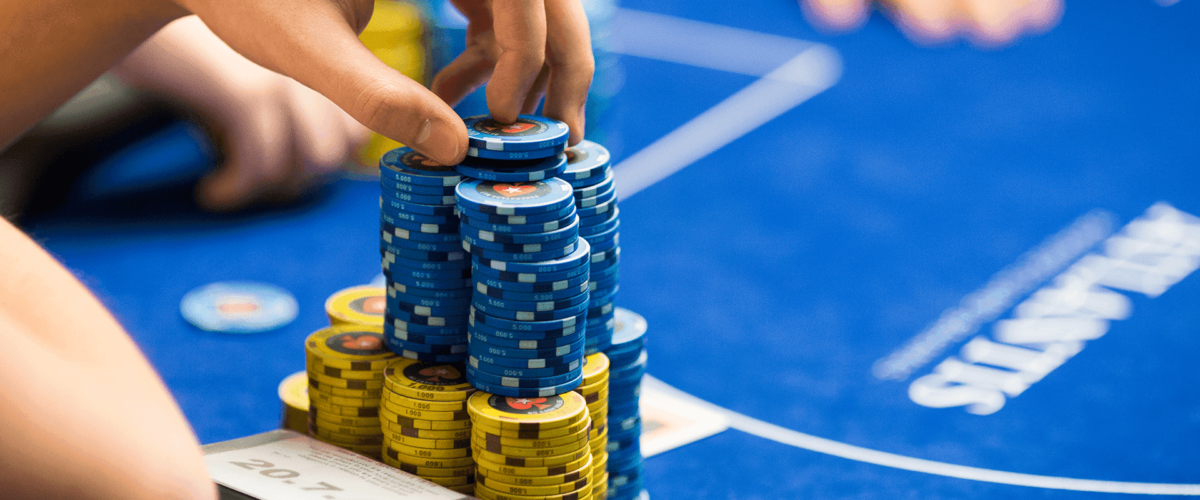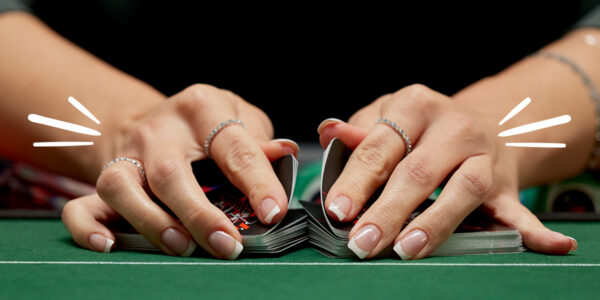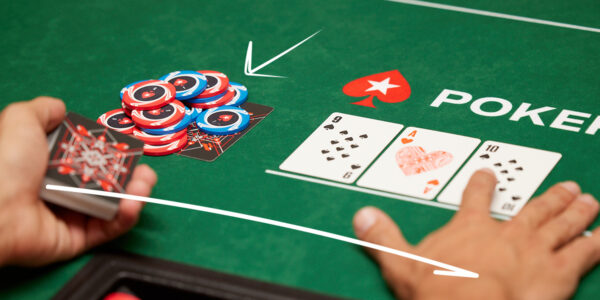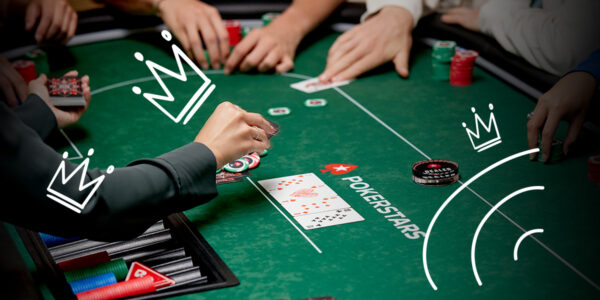5 Tips for Mastering Pot Control
Building the pot is often necessary and usually fun, but sometimes it is important to keep the bet and raise buttons on ice. Pot Control is the art of keeping the pot manageable when you have a hand that cannot gain from betting or raising. Accurately detecting when you need to do this is what separates strong, selectively aggressive players from weaker, mindlessly aggressive ones. Let’s take a closer look.
Check Stable Medium Strength Hands
A stable hand is one that is not vulnerable to future cards improving your opponent’s range at a high frequency. In other words, your hand may not be ahead, but when it is, it’s far ahead. We also refer to such hands as way ahead/way behind situations. Let’s take an example:
Let’s imagine that an unknown player opens the SB and we 3-Bet the BB with K♣ Q♣ . The flop comes down A♥ K♦ 10♠ and our opponent checks. Is there really a reason to bet here? If there is any value for us to be had then it can always wait until later in the hand. We certainly don’t expect to be able to bet three times and be in good shape when called. Moreover, checking will open the door to Villain bluffing on the turn or river if he happens to be a more aggressive opponent. Finally, checking eliminates the possibility of getting raised on the flop. It would be a shame to inflate the pot with a moderate amount of equity and then have to fold.
There are plenty of upsides to keeping the pot smaller here and no real downside. The normal objection to playing the flop passively is that we let our opponent release equity for free, but this is not such an issue here due to the stability of our hand. There is no turn card that will improve our opponent more than a tiny smidgen of the time. If he has undercards, he is drawing dead and low to medium pocket pairs have just two outs against our hand.
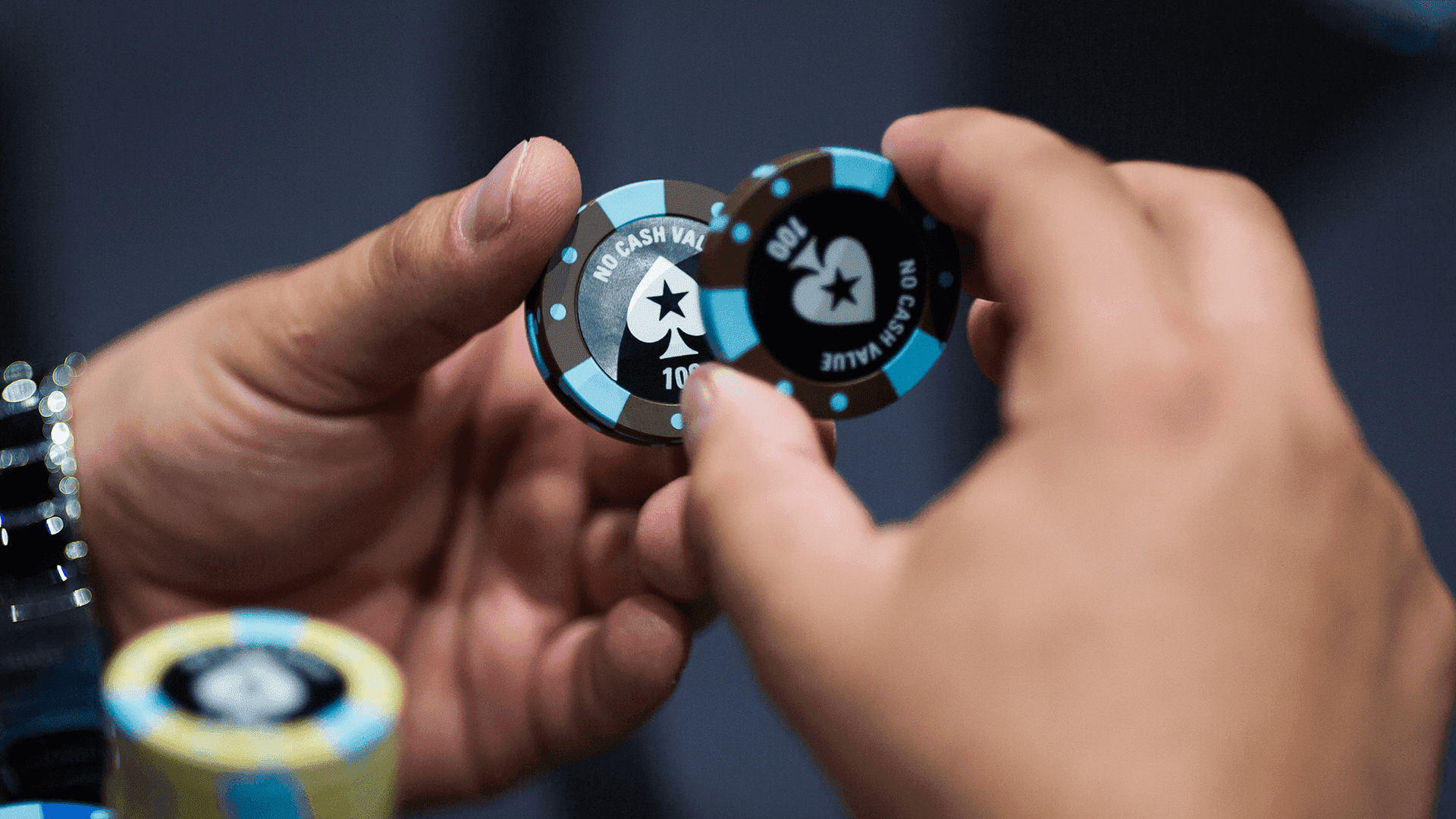
Check/Call All Medium-Strength Hands vs. Maniacs
The last example demonstrated the win-win nature of checking stable medium-strength hands. One common reason to bet the flop is protection – in other words, denying equity to your opponent by forcing him to fold the bottom of his range even though it may have up to six outs against your hand. For example, imagine we raise the SB with A♦ 4♦ and get called by the BB, and the flop comes down 8♣ 4♣ 2♠ . Against a passive player, there is a very strong argument for betting here – it protects our hand and makes our opponent fold plenty of six out hands such as QJo. However, when Villain is aggressive, it makes much more sense to check. Even better than getting our opponent to fold these six out hands is getting him to bluff with them. This means we get more money in with a huge equity advantage. Weaker aggressive players bluff too much without discretion so take a deep breath and begin the check/call plan with your second pair – you might need to call three times. Embrace the volatility!
Check Behind the turn with Mediocre Draws if Villain can Shove
The most common spots where Villain gets to shove over our turn bet is in a 3-Bet pot that started out with 100BB stacks. Let’s say we 3-Bet the BU to 9BB with J♥ 10♥ against a loose/aggressive CO, who opened to 3BB. The pot on the flop is 19.5BB (including the dead blinds) and we go ahead and c-bet 13BB on a flop of 9♠ 8♠ 4♦ . Villain calls quickly and the turn brings the 2♥ . The pot stands at 45.5BB and we have a remaining effective stack of 78BB. If we were to bet half of the pot, Villain would have a very cheap shove available, which would be very effective in demolishing our prospects. We would be forced to either bet/fold a significant slab of equity (a disaster) or bet/call as a big underdog (also a disaster.) Against players who are often going to shove, we should simply check behind on this turn and realise our equity. This is an excellent spot for pot control.
Check Behind the River with Marginal Hands against Tricky Players
If your hand makes for a very thin value bet against a weaker passive opponent, the chances are that it will be unprofitable to bet against a tough player. The reason for this is that the strong player will apply a lot more pressure by raising your bet with a sensible range of value hands and bluffs. If you are planning to bet/fold against a tricky regular, then sometimes you will be folding the best hand. The times you do this will wipe out any thin profits you make from getting called by worse hands. Let’s say you were value betting top pair for two streets and then the flush completes on the end. While it is possible that you are still a slight favourite when your river bet gets called – making value betting an option, it will not be by much and now Villain has a bunch of flushes in his range and may turn some weaker pairs into bluffs too, especially if they have a blocker to the nut flush or second nut flush. Be careful here, control the pot and ensure showdown by checking.

Flat Call 3-Bets with Strong but Non-Premium Holdings
One common beginner mistake is letting the pot get out of hand pre-flop with strong holdings like TT and AQs. Imagine we open one of these hands on the BU and a regular 3-Bets us in the BB. If we 4-bet here, we are likely to filter Villain’s range in an undesirable way, and moreover, many of the continues he makes to the 4-Bet will be in the form of a shove. When facing this shove, we will instantly find ourselves regretting the 4-Bet as folding will lead to a giant waste of equity, while calling will be a shaky way to invest a full stack. The solution is to control the size of the pot by simply calling the 3-Bet, leaving Villain’s range wide enough that we are still in good shape.
Conclusion
- Pot control is one of the less glamorous parts of the game but is one of the core components of a winning game. Here is a summary of what we have just learned:
- If your hand is both mediocre and non-vulnerable, there is often no need to bet.
- The best way to exploit maniacs is to bluff catch with your medium strength holdings.
- Avoid bet/folding decent draws when you know your opponent can shove the turn.
- Avoid marginal river value bets against players who will sometimes bluff raise you.
- Avoid 4-betting when your hand is good enough to call a 3-Bet but not good enough to stack off with.
Condimentum Nibh
Donec sed odio dui. Cras mattis consectetur purus sit amet fermentum. Vestibulum id ligula porta felis euismod semper. Curabitur blandit tempus porttitor.

